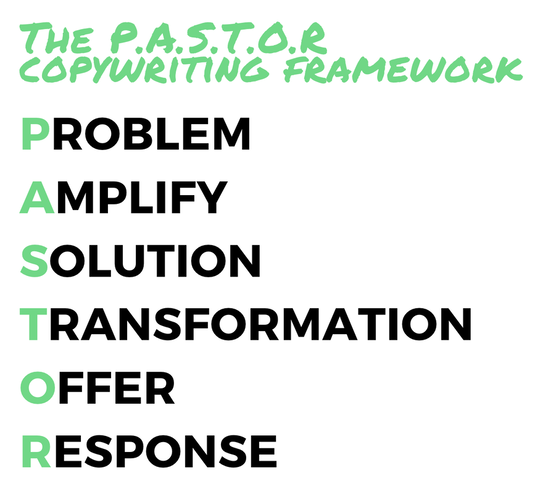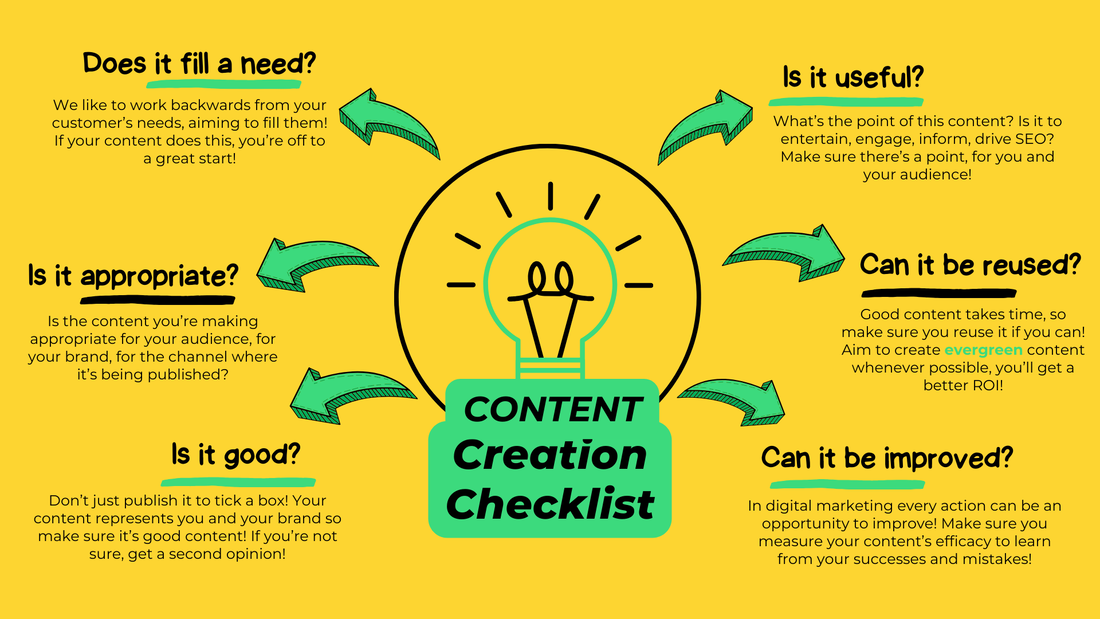Content Strategy & MarketingContent isn't simply King, it's the whole damn court, the palace, the city, it's everything! Having a good content strategy will make a huge difference in your digital marketing, it will help you attract, engage, and nurture your audience to conversion. Don't leave your content to chance, hire professional content strategists to bring your marketing to the next level.
|
Hello there, we're here to help with your content needs!
A holistic content strategy ensures that every piece of content you create is part of a bigger picture and a larger conversation meant to engage, nurture and convert your audience. Each post, email, video, and page should be purposeful. Do not create content just for the sake of it!
Every single second on the internet an incredible about of content is published: 5700 tweets, 54,977 facebook posts, and 3,400,000 emails are sent. These numbers have most likely gone up in the time you've read this sentence. That's why it's so very important for your content to be memorable, engaging, and useful. We'll help you develop content that does all this and more so that your content generates traffic and revenue!
Every single second on the internet an incredible about of content is published: 5700 tweets, 54,977 facebook posts, and 3,400,000 emails are sent. These numbers have most likely gone up in the time you've read this sentence. That's why it's so very important for your content to be memorable, engaging, and useful. We'll help you develop content that does all this and more so that your content generates traffic and revenue!
What is content marketing? What about Thought Leadership? |
Content marketing is a strategic marketing approach focused on creating, publishing, and distributing valuable, relevant, and consistent content to attract and retain a clearly-defined audience — and, ultimately, to drive profitable customer action.
Instead of pitching products or services directly, content marketing aims to provide information, insights, or entertainment that enriches the target audience's experience. This content can take various forms, including blog posts, videos, podcasts, infographics, e-books, webinars, and more. The goal is to establish authority, build trust, and foster a loyal audience or customer base over time. What's the difference between regular content and thought leadership content? Thought leadership is the practice of sharing insights, perspectives, and innovative ideas within a specific industry or niche to position oneself or a company as an authoritative expert in that domain. Thought leaders are perceived as trustworthy and knowledgeable, paving the way for new concepts, best practices, or solutions. In B2B and professional markets, thought leadership is particularly valuable for several reasons:
Using content to achieve Top of Mind and generate revenue In essence, thought leadership in B2B and professional markets isn't just about showcasing expertise; it's about forging meaningful connections by consistently delivering value. Over time, this helps in cultivating a loyal audience base that sees the brand or individual as an indispensable resource in their industry. Thought leadership and top of mind are intrinsically related. When the services of products you provide are not bought as impulse buys, it's important instead to establish a top of mind. That means that when a need arises for your services, your audience will automatically think of you and not a competitor. |
In the dynamic digital landscape, content remains king, and Bottom Line Marketing wears the crown when it comes to delivering holistic content marketing services. We understand that content isn't just about words—it's about crafting a strategic narrative that resonates with your target audience, drives engagement, and ultimately, impacts the bottom line. From formulating bespoke content strategies tailored to your business objectives to producing compelling copy that captures attention and sparks action, we've got you covered.
Unparalleled Expertise in Copywriting, Automation, and Optimization
Harnessing the power of persuasive copywriting, our team of seasoned writers dives deep into the ethos of your brand, ensuring every piece of content not only speaks to your audience but compels them to act. But content creation is just one facet of our expertise. Recognizing the significance of timely and targeted content delivery, Bottom Line Marketing leverages advanced marketing automation tools. This ensures your message reaches the right people at the optimal moment, enhancing engagement and conversion rates. Beyond this, our commitment to continuous improvement means we're always monitoring, analyzing, and optimizing your content for maximum impact and ROI.
Tailored Solutions for Forward-Thinking Companies
The digital world is ever-evolving, and so are the content needs of progressive businesses. Bottom Line Marketing is dedicated to staying ahead of the curve, offering adaptive content solutions that evolve with your business and the larger market landscape. We recognize that in today's saturated market, generic approaches simply won't cut it. That's why our suite of services, from content strategy to optimization, is meticulously tailored to align with your unique brand identity, business goals, and target audience.
Partner with Bottom Line Marketing and empower your brand with content that truly converts.
Unparalleled Expertise in Copywriting, Automation, and Optimization
Harnessing the power of persuasive copywriting, our team of seasoned writers dives deep into the ethos of your brand, ensuring every piece of content not only speaks to your audience but compels them to act. But content creation is just one facet of our expertise. Recognizing the significance of timely and targeted content delivery, Bottom Line Marketing leverages advanced marketing automation tools. This ensures your message reaches the right people at the optimal moment, enhancing engagement and conversion rates. Beyond this, our commitment to continuous improvement means we're always monitoring, analyzing, and optimizing your content for maximum impact and ROI.
Tailored Solutions for Forward-Thinking Companies
The digital world is ever-evolving, and so are the content needs of progressive businesses. Bottom Line Marketing is dedicated to staying ahead of the curve, offering adaptive content solutions that evolve with your business and the larger market landscape. We recognize that in today's saturated market, generic approaches simply won't cut it. That's why our suite of services, from content strategy to optimization, is meticulously tailored to align with your unique brand identity, business goals, and target audience.
Partner with Bottom Line Marketing and empower your brand with content that truly converts.
Check Out Our Free Content Creation Checklist
Get a free content strategy marketing consultation!
Do you need to drive traffic and revenue to your website and social media pages? Let us craft a content marketing strategy for your business.
Drop us a message and we'll find a time to have a free consultation call to discuss your content marketing needs and what we can do to help!
Drop us a message and we'll find a time to have a free consultation call to discuss your content marketing needs and what we can do to help!
Testimonials - What They're Saying About Us
"Content marketing? It's a game-changer. Working with this team, we crafted sales materials that were remarkable. Their approach wasn't just about throwing words on a page; it was a meticulously crafted strategy that resonated with our audience. And the result? A dramatic spike in our conversion rates from lead to client. It's like they have this sixth sense for what clicks with customers.”
- Luca Tagliaferro, SEO Consultant
What kind of content converts?
Great content requires a good deal of thought. Using the free content checklist above you can be well on your way to making content that is engaging, useful, and purposeful. We often get asked what kind of content converts. As you may expect, the answer is complex and depends on several things. When it comes to creating persuasive content, there are several frameworks that can be used to improve results.
Persuasive Copywriting Framework

- One of our favourite copywriting frameworks is the P.A.S.T.O.R. system created by Ray Edwards. It's easy to use, and can result in really good, persuasive content. You can use it in an email, or a social post, landing page, or even as the script for your next video. Just follow these easy steps:
2. Amplify: Point Out Why the Problem is Particularly Bad Here, delve into the consequences of the problem, making it imperative to address. Highlight the ripple effects that the problem can have on other areas of their business or life. By amplifying the problem, you're emphasizing the urgency of finding a solution. This step is about creating a sense of gravity, making the client realize that inaction might lead to greater challenges or missed opportunities.
3. Solution: Describe How to Solve the Problem Now that you've set the stage by highlighting the problem and its implications, introduce a solution. Describe a general strategy or approach that can address the core issues. Ensure your solution is actionable, feasible, and effective. This is where you start to sow the seeds of hope and show them that there's a way out of their current predicament.
4. Transformation: Demonstrate Your Credentials and How You Have Helped Solve Other Clients’ Problems Share success stories, case studies, or testimonials that showcase your expertise and past achievements. Demonstrating your credentials isn't just about flaunting your successes—it's about building trust and credibility. When potential clients see tangible evidence of how you've transformed other businesses, they'll be more inclined to believe that you can do the same for them.
5. Offer: Describe Your Specific Service Offerings Here Detail the specific services or products you offer that can directly address the client's problem. This should be a natural progression from the general solution you provided earlier. Break down your offerings, explaining how each component or feature directly contributes to alleviating their challenges. By the end of this section, the client should have a clear understanding of how your services fit into the solution framework you've presented.
6. Response: What Should the Client Do Next? End with a clear and compelling call to action (CTA). Whether it's scheduling a consultation, signing up for a webinar, or downloading a resource, guide the client on the next steps. Make the process as seamless as possible, reducing any barriers to action. The response phase is critical as it bridges the gap between understanding the solution and taking tangible steps towards implementing it.
By following this structured approach, you not only present a clear understanding of the client's challenges but also position yourself as the go-to expert for the solution, fostering trust and driving action. If you need help with this or other content creation frameworks, book a free content marketing consultation with our expert content creators!
Inbound Marketing In today's digital marketplace, inbound marketing has never been more crucial. Our bespoke content services are meticulously designed to draw your target audience into your brand universe, turning prospects into dedicated customers. Let us help you amplify your reach and solidify your online presence.
|
Thought LeadershipPositioning your brand as a trailblazer and expert in your industry is invaluable. Through our comprehensive thought leadership services, we craft insightful, authoritative articles and content pieces that not only underscore your profound expertise but also pave the way for building unparalleled trust and authority in your domain.
|
Shareable ContentThe power of virality in today's digital age is unmatched. Our dedicated team is adept at crafting irresistibly compelling content designed for sharing. With every piece we create, we aim to expand your brand's digital footprint, harnessing the organic power of audience engagement to drive your message further. Let your content do the heavy lifting!
|
Social Media ContentThe bustling world of social media is a treasure trove of potential customers and clients. We specialize in curating content that not only resonates and engages but also converts casual browsers into loyal followers. Dive deep into the realms of likes, shares, and followers with content that stands out in the crowd, and social media marketing that generates revenue.
|
SEO ContentIn the vast expanse of the internet, ensuring your brand's visibility is paramount. Our content is not only rich in quality but also optimized for search engines. By melding engaging narratives with SEO best practices, we ensure your brand isn't just present online, but prominently placed to attract a consistent influx of organic traffic.
|
Holistic Content StrategyIn an era where brand consistency is key, fragmented content efforts can be a brand's downfall. We pride ourselves on devising a comprehensive, holistic content strategy that ensures a cohesive brand voice, a unified message, and maximized returns on every piece of content across all channels and platforms.
|
Content Marketing in the Cayman Islands
When it comes to smaller markets like Cayman Islands there are several important factors to keep in mind. Here we look at 3 important points that will help you get the most out of your content.
|
Creating Culturally Relevant Content for the Cayman Audience:
In the Cayman Islands, where local culture and interests significantly influence consumer behavior, content must resonate with these unique aspects to be effective. Developing content that incorporates local stories, landmarks, events, and vernacular can foster a deeper connection with the audience. For instance, content that references well-known local phenomena or addresses specific island issues can significantly enhance relevance and engagement, making the content strategy more effective and relatable for the Cayman audience. |
Understanding the Local Digital Landscape for Effective Content Distribution:
A deep understanding of the Cayman Islands' digital consumption patterns is vital for distributing content effectively. Recognizing the most popular platforms and media consumption habits can guide the strategy for content distribution and promotion. Whether it's a focus on particular social media platforms favored in the Cayman Islands or understanding peak times for content engagement, tailoring the distribution strategy can maximize visibility and impact of the content among the local audience. |
Leveraging Local Insights for Strategic Content Planning:
In the Cayman Islands, leveraging local market insights can provide a competitive edge in content strategy. This involves understanding local business trends, consumer preferences, and even seasonal factors that influence content relevance and consumption. By aligning content topics, styles, and delivery with these insights, businesses can ensure their content marketing efforts are more precisely targeted and effective. For example, aligning content campaigns with local events or economic trends can increase the content's resonance with the audience, leading to better engagement and conversion rates. |
1. What is content strategy in marketing?
Content strategy in marketing refers to the planning, development, and management of content, tailored specifically for a target audience. It involves creating a roadmap for producing, delivering, and maintaining content to achieve specific business objectives.
2. What is the content strategy?
Content strategy is the overarching plan and approach that guides the creation, publication, and governance of useful, usable content. It ensures that the content aligns with the brand's values, goals, and audience needs.
3. What are examples of content strategy?
Examples of content strategy include a detailed editorial calendar, audience persona mapping, a channel distribution plan, and guidelines for tone, style, and branding across various content types.
4. What are the 3 C's of content strategy?
The 3 C's of content strategy are Content, Customer, and Context. They emphasize the importance of creating valuable content, understanding the target customer's needs, and delivering it in the right context to maximize engagement.
5. What are the 3 primary categories of content?
The three primary categories of content are owned content (your websites, blogs, social media profiles), earned content (reviews, mentions, shares by others), and paid content (advertisements, sponsored posts).
6. What do you mean by content marketing?
Content marketing is a strategic approach focused on creating, distributing, and promoting valuable, relevant, and consistent content to attract and retain a specific audience, ultimately driving profitable customer actions.
7. What is content marketing vs. marketing?
While traditional marketing talks at people, content marketing talks with them. Content marketing seeks to provide value and educate the audience, fostering a deeper relationship, while traditional marketing primarily pushes products or services.
8. What is content marketing in simple words?
Content marketing is about creating and sharing useful content to attract and retain customers.
9. What is the most popular content marketing?
Blogging, video content, infographics, podcasts, and webinars are among the most popular content marketing forms, owing to their high engagement and shareability.
10. What is content marketing in social media marketing?
Content marketing in social media involves creating and sharing content tailored to specific social platforms to engage users, drive brand awareness, and encourage specific actions.
11. What is the difference between content marketing and online marketing?
While content marketing focuses on creating and distributing valuable content as a means to engage a target audience, online marketing is a broader concept that encompasses various digital marketing tactics, including SEO, PPC, email marketing, and more.
12. Why should I hire a content marketer?
Hiring a content marketer ensures that you have an expert who can craft content aligned with your business goals, understand the nuances of your audience, and effectively drive engagement and conversions.
13. Why does content matter?
Content matters because it builds trust, educates your audience, drives website traffic, and positions your brand as an authority in your field.
14. Should I have a blog on my website?
Yes, a blog provides a platform to showcase expertise, share insights, answer customer queries, and drive organic traffic through SEO-rich content.
15. What is the difference between thought leadership and content marketing in general?
While both aim to provide value, thought leadership is about establishing authority in a specific niche through insights and expertise, whereas content marketing encompasses a wider range of content types to engage and convert an audience.
16. What kind of content is most effective?
The effectiveness of content varies by audience and goal, but in general, content that's authentic, actionable, and relevant to the audience's needs and interests tends to be most effective.
17. Why should I focus on inbound marketing?
Build it and they shall come. Inbound marketing attracts customers by creating valuable content and tailored experiences, ensuring that prospects come to you rather than you chasing them, resulting in more qualified leads and better ROI.
18. What ROI can I expect from content marketing?
While the exact ROI varies, businesses often see increased website traffic, longer time spent on site, higher conversion rates, and improved brand loyalty with effective content marketing.
19. Why does having a content strategy matter?
Having a content strategy ensures that all your content efforts align with your business goals, resonate with your target audience, and yield measurable results, ensuring efficient use of resources and time.
20. What is an example of content strategy?
An example of a content strategy might include defining target personas, creating a content pillars and a content calendar around topics those personas care about, determining the best platforms for distribution, and setting metrics to measure content effectiveness.
Content strategy in marketing refers to the planning, development, and management of content, tailored specifically for a target audience. It involves creating a roadmap for producing, delivering, and maintaining content to achieve specific business objectives.
2. What is the content strategy?
Content strategy is the overarching plan and approach that guides the creation, publication, and governance of useful, usable content. It ensures that the content aligns with the brand's values, goals, and audience needs.
3. What are examples of content strategy?
Examples of content strategy include a detailed editorial calendar, audience persona mapping, a channel distribution plan, and guidelines for tone, style, and branding across various content types.
4. What are the 3 C's of content strategy?
The 3 C's of content strategy are Content, Customer, and Context. They emphasize the importance of creating valuable content, understanding the target customer's needs, and delivering it in the right context to maximize engagement.
5. What are the 3 primary categories of content?
The three primary categories of content are owned content (your websites, blogs, social media profiles), earned content (reviews, mentions, shares by others), and paid content (advertisements, sponsored posts).
6. What do you mean by content marketing?
Content marketing is a strategic approach focused on creating, distributing, and promoting valuable, relevant, and consistent content to attract and retain a specific audience, ultimately driving profitable customer actions.
7. What is content marketing vs. marketing?
While traditional marketing talks at people, content marketing talks with them. Content marketing seeks to provide value and educate the audience, fostering a deeper relationship, while traditional marketing primarily pushes products or services.
8. What is content marketing in simple words?
Content marketing is about creating and sharing useful content to attract and retain customers.
9. What is the most popular content marketing?
Blogging, video content, infographics, podcasts, and webinars are among the most popular content marketing forms, owing to their high engagement and shareability.
10. What is content marketing in social media marketing?
Content marketing in social media involves creating and sharing content tailored to specific social platforms to engage users, drive brand awareness, and encourage specific actions.
11. What is the difference between content marketing and online marketing?
While content marketing focuses on creating and distributing valuable content as a means to engage a target audience, online marketing is a broader concept that encompasses various digital marketing tactics, including SEO, PPC, email marketing, and more.
12. Why should I hire a content marketer?
Hiring a content marketer ensures that you have an expert who can craft content aligned with your business goals, understand the nuances of your audience, and effectively drive engagement and conversions.
13. Why does content matter?
Content matters because it builds trust, educates your audience, drives website traffic, and positions your brand as an authority in your field.
14. Should I have a blog on my website?
Yes, a blog provides a platform to showcase expertise, share insights, answer customer queries, and drive organic traffic through SEO-rich content.
15. What is the difference between thought leadership and content marketing in general?
While both aim to provide value, thought leadership is about establishing authority in a specific niche through insights and expertise, whereas content marketing encompasses a wider range of content types to engage and convert an audience.
16. What kind of content is most effective?
The effectiveness of content varies by audience and goal, but in general, content that's authentic, actionable, and relevant to the audience's needs and interests tends to be most effective.
17. Why should I focus on inbound marketing?
Build it and they shall come. Inbound marketing attracts customers by creating valuable content and tailored experiences, ensuring that prospects come to you rather than you chasing them, resulting in more qualified leads and better ROI.
18. What ROI can I expect from content marketing?
While the exact ROI varies, businesses often see increased website traffic, longer time spent on site, higher conversion rates, and improved brand loyalty with effective content marketing.
19. Why does having a content strategy matter?
Having a content strategy ensures that all your content efforts align with your business goals, resonate with your target audience, and yield measurable results, ensuring efficient use of resources and time.
20. What is an example of content strategy?
An example of a content strategy might include defining target personas, creating a content pillars and a content calendar around topics those personas care about, determining the best platforms for distribution, and setting metrics to measure content effectiveness.











